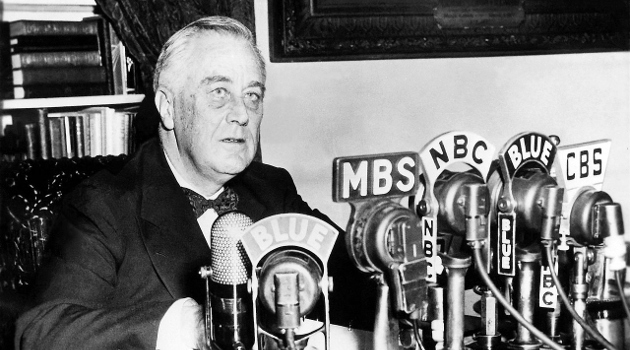Based on economic policy, was Richard Nixon America’s worst president?
Or was it Herbert Hoover? How about Lyndon Johnson? And let’s not forget Woodrow Wilson.
Those are all plausible options, but there’s a strong case to be made that Franklin Roosevelt was the worst of the worst.
He helped turn a bad recession into the Great Depression by extending and expanding most of Herbert Hoover’s bad policies.
He doubled the burden of government spending in his first eight years and imposed big tax increases (at one point even proposing a 100 percent rate – outright confiscation!).
But he also was a big proponent of industrial policy, and that the topic of today’s column.
In a column for the Wall Street Journal, Professor Jason Taylor explains the failure of President Franklin Roosevelt’s so-called National Industrial Recovery Act.
In June 1933 Roosevelt signed the National Industrial Recovery Act (NIRA), which required firms to meet with competitors and construct a “code of fair competition.” Over two years, 557 codes were implemented in industries ranging from steel to fishing tackle. …Businesses that were found violating the codes—say, charging a price below the code-specified one—could face hefty fines and imprisonment. …Predictably, the NIRA was a disaster. Companies responded to forced wage increases by scaling back employment. And colluding firms did what cartels generally do—they restricted output and raised prices. …manufacturing output rose an unprecedented 78% between March and July 1933, it fell sharply after the Blue Eagle’s arrival. By November two-thirds of the recovery gains were lost. …While it’s impossible to say exactly how the U.S. economy would have fared without the NIRA’s enactment, we do know one thing: The Great Depression would’ve been a lot less depressing. As he signed the NIRA, FDR said it was “the most important and far-reaching legislation ever enacted.” It was important, far-reaching and disastrous.
The moral of the story is that bad government policies caused the Great Depression, and FDR made a bad situation far worse.
P.S. FDR also wanted an “Economic Bill of Rights” that would have created far-reaching entitlements to other people’s money.
P.P.S. There was another president in the first half of the 20th century who showed how a deep recession could be quickly ended.
———
Image credit: U.S. National Archives and Records Administration | Public Domain.


